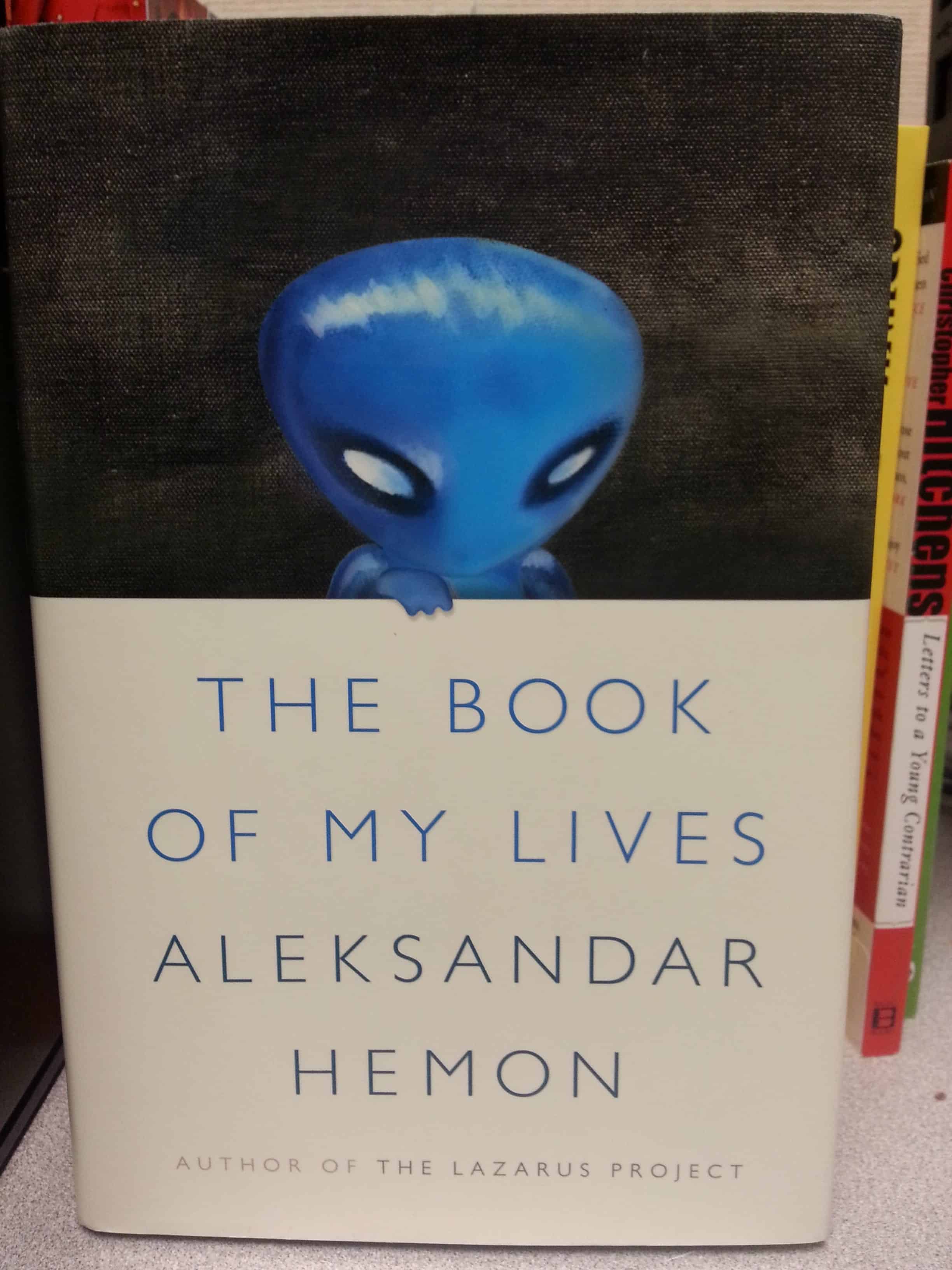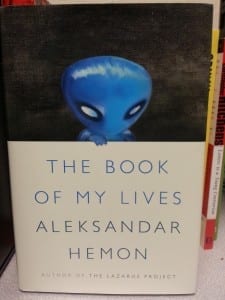Nonfiction? Memoir?

Review of The Book of My Lives
Article: Evan Radford – Contributor
[dropcaps round=”no”]T[/dropcaps]he Book of My Lives is Aleksandar Hemon’s fifth published book, released in early 2013, and a finalist for the National Book Critics Circle Award. The book is sold in the biography section at most bookstores, and the publisher lists it as a memoir. But, calling this work a memoir of Hemon’s life only begins to do it justice.
Hemon recounts his life from early childhood in Sarajevo through to present-day adulthood in Chicago with a series of essays. What’s more, he writes the essays with such depth, fluency, and brutal honesty that his essays read as fictional stories.
As Hemon says in the opening of his acknowledgements, “I write fiction because I cannot not do it, but I have to be pressed into writing nonfiction.”
This collection is arguably somewhere in the middle, situated at the meeting point of honest nonfiction and emotional, expansive narrative. He manages to merge the two genres with precise, perceptive, lucid prose.
Hemon begins the collection with a searing, revealing account of how, as a four-year-old, he failed to “exterminate” his newly born sister in an attempt to reclaim his mother’s undivided love and attention. The young Hemon relinquishes the pressure on his infant sister’s trachea, realizing he “wanted her to live so I could love her more.” But, the ordeal serves as sobering realization for him that “never again would my selfhood be a sovereign territory devoid of the presence of others.” An ominous foreshadow of the Bosnian war.
Hemon, now 50, takes readers through his childhood and teens years growing up in Sarajevo. He recounts touching, comical episodes, including work as a part time radio jockey, and organizing a counter-culture, mock-fascist evening social that lands him in handcuffs.
The humour and absurdity of Hemon’s early stories are balanced only by the impending Bosnian war, always in the background of Hemon’s consciousness and just beyond the horizon of his childhood stories.
As the war breaks out, Hemon and his family are forced to leave their beloved Sarajevo forever. The seemingly ordinary locations, people, and events of the city become cherished items that will forever be consumed by the fog of a useless, ethnic war. Hemon’s detailed account of what makes the perfect borscht is a tear-jerking allegory for cohesion among a family. Hemon’s relationship with the family dog becomes just as important as that with the rest of his family. Suspense builds as his family tries to arrange for the dog’s safe transport to Canada.
As his parents and sister settle in Hamilton, Hemon begins to make his home in Chicago. His childhood lives as a Bosnian intersect with the lives he tries to build as an immigrant in America. What his stories in Chicago lack in youth, they more than make for with wisdom, acceptance, and maturity. He convincingly narrates how and why football is, indeed, a beautiful game. He takes readers through the literal shit that ensues after a brutal divorce and putrid bachelor life.
Hemon ends the collection with a powerful piece about a death in his newly-formed family. His prose brings the story to life. The fact he experienced such an ordeal will weigh heavily on readers. The piece is aptly named “The Aquarium.”
As Hemon describes, “I had a strong physical sensation of being in an aquarium: I could see out, the people outside could see me [if they chose to pay attention], but we were living and breathing in entirely different environments.”
Readers who engage Hemon’s collection will not only be moved to tears of happiness and tragedy, they will be jolted into new understandings of what it means to be a child, a brother, a citizen, a friend, an immigrant, a husband, a father.
[button style=”e.g. solid, border” size=”e.g. small, medium, big” link=”” target=””]Image: Evan Radford[/button]










